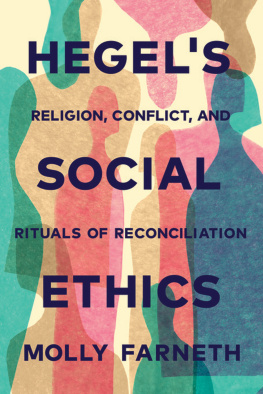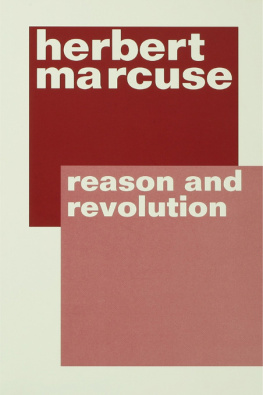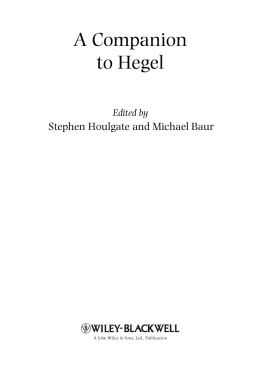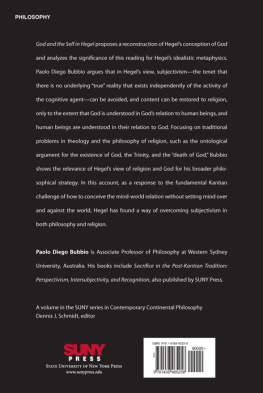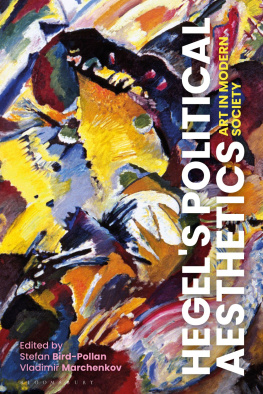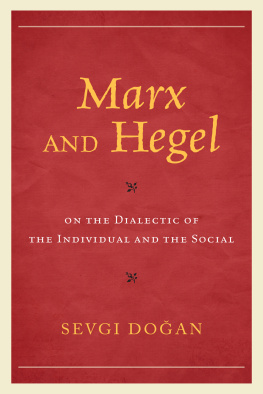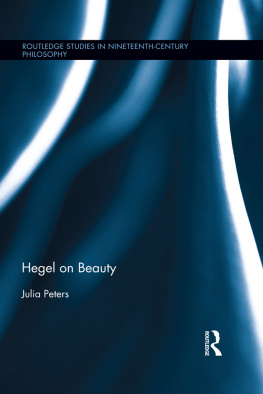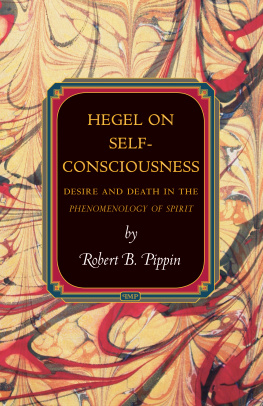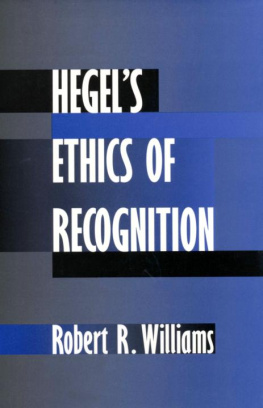
HEGELS SOCIAL ETHICS
Hegels Social Ethics
RELIGION, CONFLICT, AND RITUALS OF RECONCILIATION

Molly Farneth
PRINCETON UNIVERSITY PRESS
PRINCETON & OXFORD
Copyright 2017 by Princeton University Press
Published by Princeton University Press,
41 William Street, Princeton, New Jersey 08540
In the United Kingdom: Princeton University Press,
6 Oxford Street, Woodstock, Oxfordshire OX20 1TR
press.princeton.edu
All Rights Reserved
ISBN 978-0-691-17190-6
Library of Congress Control Number: 2017936618
British Library Cataloging-in-Publication Data is available
This book has been composed in Miller
Printed on acid-free paper.
Printed in the United States of America
10 9 8 7 6 5 4 3 2 1
To Ethan
CONTENTS
PREFACE
THIS IS A BOOK for people who care about Hegel and people who dont.
For those who care about Hegel, it draws on important recent work on his epistemology and shows how his account of how we know is linked to his account of how we ought to live. The latter is what I call Hegels social ethics. Social ethics, on this account, is not primarily about what we ought to do in the face of particular moral quandaries; rather, it is about the relationships, practices, and institutions that a community ought to cultivate. It is about Sittlichkeit. A modern Sittlichkeit, according to Hegel, involves contestation as well as rituals of reconciliation. Without both of thesepractices of conflict and reconciliationneither his epistemology nor his ethics can be realized. This book shows what those practices are and how they can be sustained in religiously diverse communities.
For those who dont care about Hegel, the book offers something else. It develops a distinct approach to social ethics that attends to conflict and reconciliation in contemporary life. It details how this approach emerged in one significant strand of modern Western philosophy, and it shows what this approach might teach the members of religiously diverse communities about how to talk and listen to one another across difference, build relationships of reciprocal recognition, and forge solidarity in the struggle for justice. While the book includes close readings of passages of Hegels Phenomenology of Spirit, my hope is that readers unfamiliar with the details of Hegels philosophy will be able to see what is worth seeing in those passages.
This book is itself the result of countless conversations, some contestations, and many relationships of reciprocal recognition. Thomas A. Lewis suggested to me, before I counted myself among those who care about Hegel, that Hegel might have something to add to conversations about religious diversity and democracy. I am grateful to him for that suggestion and for our many conversations about Hegel in the years since. At Princeton University, I was fortunate to work with an extraordinary group of faculty. I owe a particular debt of gratitude to Jeffrey Stout. He has offered sage advice, generous encouragement, and profound criticism, in the right measure and at the right moments. More than that, his example as a teacher and scholar has helped me to imagine a place for myself in this work. Far-ranging conversations about religion, ethics, and democracy with Leora Batnitzky, Eddie Glaude, Eric Gregory, and Cornel West encouraged me, on many occasions, to see the forest and not only the trees.
The book benefited from the generosity of many colleagues who read and commented on portions of the manuscript over the years that I was working on it, including Danielle Allen, Lawrie Balfour, Anna F. Bialek, John Bowlin, David Decosimo, Eric Gregory, Amy Hollywood, Bonnie Honig, Thomas A. Lewis, Louis Ruprecht, Jeffrey Stout, Ronald F. Thiemann, Cille Varslev, James Wetzel, Derek Woodard-Lehman, Kathleen Wright, and the members of the Religion and Critical Thought workshop at Princeton University. The book is much better for their questions, comments, and criticisms. Conversations with Joseph Winters and Kevin Wolfe challenged me to think more deeply about the promises and perils of Hegels thought and modeled the best of collegiality and friendship. Special thanks to Terrance Wiley, for countless conversations about the ideas at the heart of this book, and to Joel Schlosser, for helping me think about how to bridge the gap between religious studies and democratic theory. Thanks, too, to Michael Lamb and Elias Sacks for their camaraderie and insight. Alda Balthrop-Lewis, Anna F. Bialek, Shira Billet, Emily Dumler-Winckler, and Sarah Stewart-Kroeker have been steadfast companions through the writing and revising process, and they have infused it with their wisdom and good humor.
The book was written with the support of several institutions and organizations. During my years at Princeton University, I received research fellowships from the Center for the Study of Religion, the University Center for Human Values, and the Charlotte W. Newcombe Foundation. The book would barely have been begun, let alone completed, without that support. At Haverford College, the generosity of the Provosts Office made the final stages of research and revision possible. I am grateful to my colleagues in Haverfords Department of ReligionKen Koltun-Fromm, Naomi Koltun-Fromm, Anne McGuire, and Terrance Wileyfor their support and wise counsel.
It has been a pleasure to work with Princeton University Press. I am particularly indebted to Fred Appel for his guidance through the process. Thanks as well to Jenn Backer, Thalia Leaf, and Jenny Wolkowicki for their assistance and advice. Two anonymous reviewers for the press provided exceedingly thoughtful and insightful feedback on the manuscript that helped me see the project in new ways.
I presented portions of this book at a number of conferences and workshops, and I am grateful to the audiences on those occasions for their feedback. Portions of appeared in Farneth, M. (2015), Hegels Sacramental Politics: Confession, Forgiveness, and Absolute Spirit, Journal of Religion 95, no. 2, 2015, Journal of Religion, University of Chicago Press Journals. In both cases, modifications have been made to the originally published text. I am grateful to the publishers for their permission to use that material here.
is an excerpt from the Preface of When I Was a Child I Read Books by Marilynne Robinson. 2012 by Marilynne Robinson. Reprinted by permission of Farrar, Straus & Giroux; HarperCollins Canada; and Little, Brown and Company, UK. All rights reserved.
I am grateful to Terry Pinkard for permission to use his unpublished translation of the Phenomenology of Spirit throughout this book: G. W. F. Hegel, Phenomenology of Spirit, facing-page translation, trans. Terry Pinkard, https://www.academia.edu/16699140/Translation_of_Phenomenology_of_Spirit. Where I have altered Pinkards translation, I note the alteration in the endnotes.
Finally, my parents goodness and generosity have made everything possible, this book included. I am grateful for their help and that of my in-laws in keeping things afloat over the past year. My daughter, Natalie, has tolerated my work, but, more important, she has offered the best of reasons to set it aside. Ethan has been a source of boundless enthusiasm, support, and good humor, as well as much-needed perspective. For that, and for so much else, I owe him more than I can say.
A NOTE ON PRIMARY TEXTS
IN-TEXT CITATIONS of the Phenomenology of Spirit include the paragraph number in Terry Pinkards translation, followed by the page number in Hegel,
Next page
